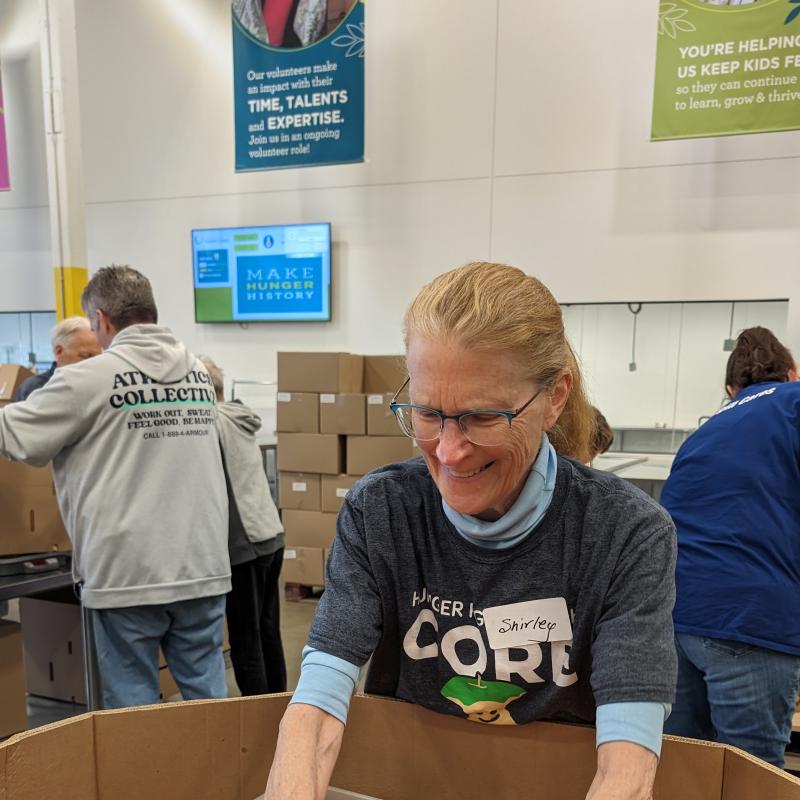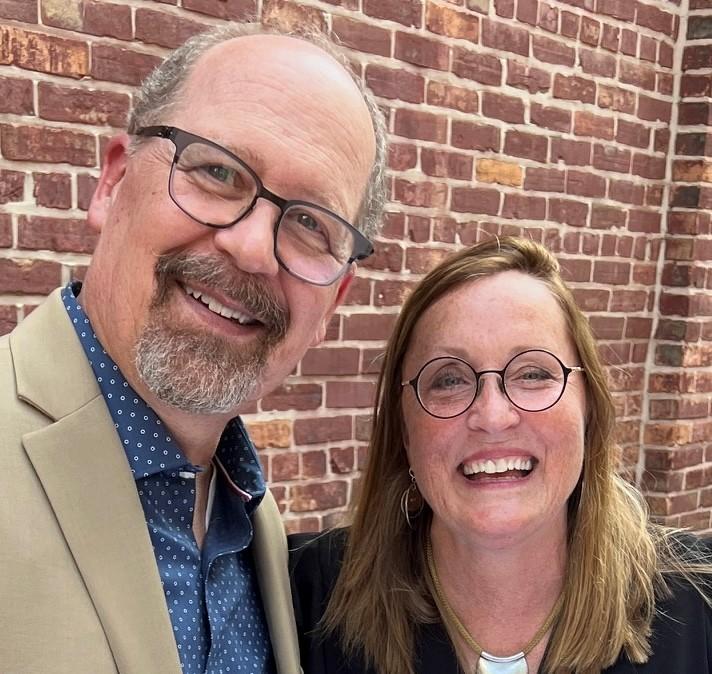
PLANNED GIVING
We share your vision of a future where no one is hungry. By making a planned gift through your will, estate or other financial plan, you can help us provide food, support, and stability to our neighbors for years to come.
Make a Difference With Your Estate
When you choose to include Second Harvest Heartland as part of your financial plan for the future, you turn your passions into priorities. Your commitment to our mission allows Second Harvest Heartland to support our neighbors with the food and resources they need today and provides the stability we need to meet the challenges of our community tomorrow.
Are you ready to make your plan? Second Harvest Heartland has partnered with GivingDocs to offer a FREE suite of estate planning tools to our dedicated donors!
Ways to Make a Planned Charitable Gift
Your generous support helps sustain our food bank’s programs and services across the heartland—and plan ahead to invest in new opportunities that help us meet the ever-changing demand for healthy, nutritious meals.
By planning a charitable bequest, designating Second Harvest Heartland as a beneficiary or considering other estate planning options, you can help hungry neighbors across Minnesota and Wisconsin for years to come.
Please contact our development team for specific language, tax ID information and other details to include in your financial documents.
Wills and Bequests
Making a bequest to Second Harvest Heartland in your will or living trust helps you support our mission, while also taking care of your loved ones. You can leave a percentage or set amount of your overall estate to help us end hunger.
Are you ready to make your plan? Second Harvest Heartland has partnered with GivingDocs to offer a FREE suite of estate planning tools to our dedicated donors!
Retirement Accounts
You can help end hunger by leaving the entirety or a portion of the funds in your IRA, 401(k), 403(b), or other retirement assets to Second Harvest Heartland. Simply designate Second Harvest Heartland as a beneficiary on your accounts, just as you would a loved one.
These gifts are especially advantageous to donate to charity, as non-spouse heirs are subject to a 10-year payout rule that may come with a significant tax burden for heirs. Nonprofits do not have to pay income tax on these accounts when they are donated.
Insurance Policies
Just like you can name an individual as the beneficiary of a life insurance policy, you can also name Second Harvest and other nonprofits to receive funds after your passing.
Designating our food bank as a life insurance beneficiary ensures your generous gift is put to use as soon as possible. That’s because beneficiary designations supersede allocations made in a will and can be distributed faster than the probate process.
Charitable Gift Annuities
A Charitable Gift Annuity (CGA) is a smart way to increase your charitable giving and meet your own future financial goals. If you’re 65 or older, you can fund a CGA that supports both you as a donor, and Second Harvest Heartland. You receive an immediate tax-deduction on a portion of that gift, then receive fixed payments every year for your lifetime—and the lifetime of one other beneficiary if you choose. After your passing, Second Harvest Heartland receives the remaining balance of your charitable gift.
We are glad to partner with Feeding America, who administers CGAs on our behalf.
Real Estate and Other Assets
Donating your home to Second Harvest through your will, trust, or a transfer-on-death deed (TODD) is one of the most significant ways to support our mission. We partner with the Saint Paul & Minnesota Foundation to oversee donated real estate – if you are interested in donating your home, please contact our team so we can introduce you to the proper advisors at the Foundation.
The Saint Paul & Minnesota Foundation can also accept other complex donations on our behalf. If you have a unique asset that you would like to donate to support our mission, we can introduce you to their Gift Planning team to discuss what is possible.
Have you already included Second Harvest Heartland in your will or estate plan? Thank you! Please use this form to notify us so we know a little bit about your intentions. |
MORE PLANNED GIVING OPTIONS
Stocks
Donating stocks, securities or mutual fund shares is a tax-efficient way to support our work at Second Harvest Heartland.
Donor Advised Funds
This flexible investment vehicle acts like a charitable savings account. It’s a great way to positively impact your tax bill and help feed hungry families.
IRA Charitable Rollovers
Retirees with an individual retirement account (IRA) can donate money to our food bank, lower your tax burden, and fulfill your required minimum distribution (RMD)—all at the same time.
Frequently Asked Questions
A planned charitable gift to Second Harvest Heartland helps us feed hungry neighbors right now—and plan for the needs of tomorrow. With a planned gift through your estate, your passion for feeding our community can become a lasting legacy of ending hunger.
You can support Second Harvest Heartland in a variety of ways. You can make a bequest to our food bank in your will; name Second Harvest Heartland as a beneficiary on your insurance policies or financial accounts; or establish a charitable gift annuity that helps solve hunger. Second Harvest Heartland can accept a wide range of other gifts, including stocks, IRA charitable rollovers—even donations of used vehicles.
Have estate planning questions? Contact Development Officer Kelsey Tyler at 651-282-0865 or ktyler@2harvest.org.
You can support your loved ones and Second Harvest Heartland in your will, trust or estate plan. A planned charitable gift of any size will have a significant impact on our ability to help end hunger and feed those in need. Charitable estate giving can also help your heirs by lessening capital gains tax liabilities for your individual beneficiaries.
Second Harvest Heartland is a tax-exempt 501(C)(3) nonprofit organization recognized by the IRS, tax ID number: 23-7417654. Your gift is tax-deductible as allowed by law. Review our annual reports and tax filings here.






